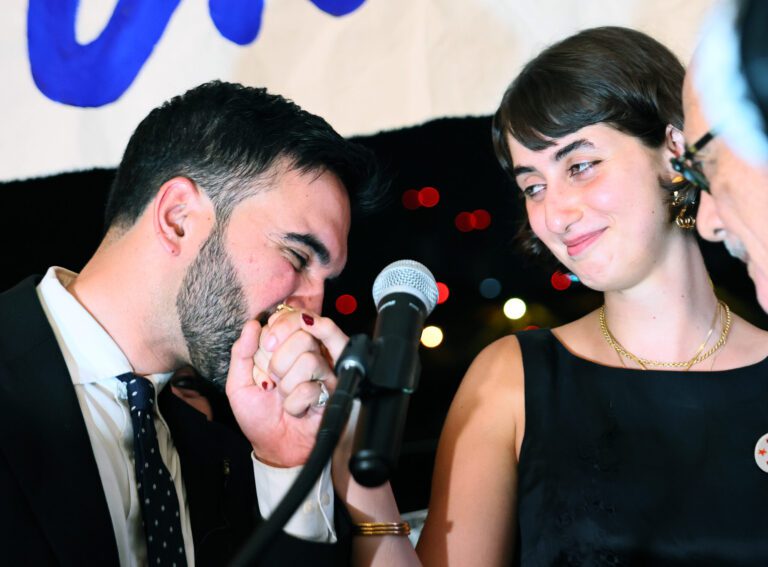Who is Rama Duwaji? Meet the Potential First Lady of New York City
When Zohran Mamdani clinched the Democratic primary for New York City mayor in June, his progressive vision garnered significant attention. However, a significant part of the public focus has also been directed toward Rama Duwaji — a 28-year-old illustrator and animator poised to potentially become New York’s First Lady.
A Unique Heritage: Damascus to New York
Rama Duwaji, with an Instagram following of over 160,000, describes herself as "from Damascus." Yet, a campaign representative clarified that while she identifies ethnically as Syrian, her roots are planted in Houston, Texas. This distinction raises interesting questions about her emphasis on her heritage in a public role.
Why Highlight "Foreign" Heritage?
In various media portrayals, Duwaji is frequently labeled as "Syrian," or "from Damascus," even though public records confirm her Texas birthplace. A detailed article in Time clarifies that she was indeed "born in Texas to a Syrian family." Following a move to Dubai at the age of nine, she returned to the United States to pursue her artistic endeavors.
A Journey of Identity Exploration
In a 2019 interview, Duwaji articulated her evolving perception of identity:
“I started making work about identity, what it means to be Syrian abroad and kind of just delved into these topics that meant a lot to me.”
Her academic and professional background showcases her American credentials, including a BFA from Virginia Commonwealth University and an MFA from New York’s School of Visual Arts. Duwaji’s work has appeared in prestigious publications like The New Yorker and the Washington Post, yet her public persona strongly emphasizes her Middle Eastern heritage.
The Deliberate Choice: Heritage Over Hometown
Cultural Commentary on Identity
Cultural commentator Kara Kennedy speculates on Duwaji’s choice to emphasize her heritage, stating:
"Damascus tells a better story… it’s global and emotionally loaded in a way ‘Houston’ isn’t."
Kennedy also suggests that this decision plays into a broader progressive narrative favored by voters.
- Branding Identity: By choosing to highlight her Syrian background, Duwaji aligns herself with a narrative that resonates within elite artistic circles.
- Progressive Appeal: A Damascus-native persona fits neatly within the progressive narrative of diversity and activism.
Personal Reflections
Duwaji has expressed feelings of not fitting into the typical American identity, stating that moving to the United States in 2016 rendered her “definitely not really American in the typical sense.” This sentiment has likely encouraged her to embrace her Middle Eastern roots more actively.
Public Perception and Political Implications
In today’s political landscape, identity transcends mere background—it becomes a statement that carries weight, especially for the spouse of a candidate with a progressive platform.
Mixed Reactions to Identity Presentation
Some view Duwaji’s emphasis on her Syrian identity as:
- Culturally Significant: Reflects the diverse tapestry of NYC, embracing multiculturalism rather than a singular American identity.
- Potentially Inauthentic: Critics argue that selectively presenting her identity may raise questions about authenticity on a national stage.
Adam Weiss, the CEO of AMW Public Relations, highlighted a shift in how some demographics perceive American identity:
“Being American, to them, stands for capitalism, freedom, exceptionalism… so they emphasize where their parents are from.”
Impact on the Campaign
As Mamdani continues his campaign, the focus on Duwaji’s global image synergizes with a narrative of diversity, appealing to a younger, more progressive electorate. However, the extent to which NYC voters will appreciate this presentation remains to be seen.
“I think the press will have a field day,” Weiss predicted, suggesting a flurry of media attention is imminent due to Duwaji’s artistic background and vibrant public persona.
Conclusion: A New Era for NYC
As New York prepares for potentially electing its first socialist mayor, the Mamdani-Duwaji duo embodies a transformative moment for the city. However, this narrative will require ongoing scrutiny regarding authenticity, cultural representation, and public perception.
For more on the dynamics of identity in political narratives, consider exploring additional sources on identity politics.
By examining both the personal and political implications of Duwaji’s choices, New Yorkers and observers alike are left to ponder the evolving definition of identity in a rapidly changing political landscape.


